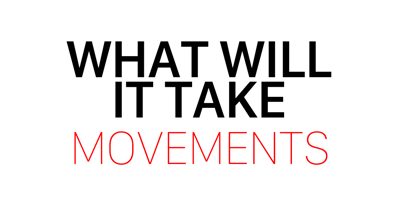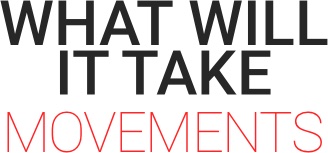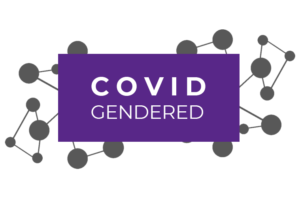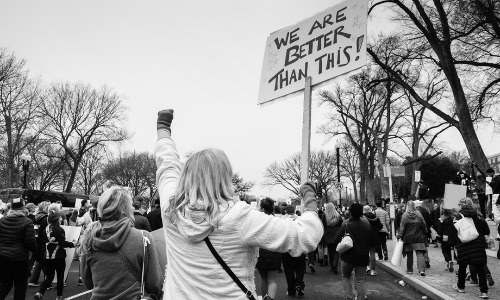By Marianne Schnall and Tolu Lawrence
Featuring insights from: Luvvie Ajayi, Aimee Allison, Kimberlé Crenshaw, Brittany Packnett Cunningham, Alicia Garza, Valerie Jarrett, Barbara Lee, Amanda Seales, Opal Tometi, and Raquel Willis
Earlier this year, Joe Biden famously made an announcement during a Democratic debate. He promised Americans that his running mate would be a woman. Two weeks ago, to a nation weary from battling two deadly pandemics—coronavirus and systemic racism—Biden made history by announcing Senator Kamala Harris as his running mate, the first Black and South Asian woman VP candidate on a major party ticket in US history.
In the fight for civil rights in America, Black women have steadily led the way for centuries. Black women led the Underground Railroad, were the unsung leaders of the suffrage movement, organized freedom riders, paved the way for constitutional protections against sex discrimination and remain the most consistent voting block in the United States to stand up for the rights of marginalized people.
Black women are by no means a monolith, and yet as a group have a deep understanding of the relational nature of freedom, precisely because they sit at various intersections of targeted oppression. This means that for Black women, a conversation about maternal and child health must include a discussion about access to care and unconscious bias; a conversation about raising children must include a discussion about implicit dehumanization and police brutality; a conversation about education must include a discussion about adultification bias and the school to prison pipeline; and for Black women, a discussion about gender must include a discussion about equal pay and violence against Black trans women.
Black women’s leadership isn’t just about their strength and perseverance. It’s about how consistently they show up and fight for the common good. Whether Black women are narrowing the wealth gap, fighting for free and fair elections or gearing up to assume one of the highest offices in the nation, when Black women lead, we all win.
Today, we find ourselves facing another chapter in America, but it’s not a new one—the fight for racial justice is sadly familiar, and it is as painful as it is hopeful. As we continue to march in the streets, organize and demand that our nation finally realizes the promise of its founding for all Americans, the question we must ask ourselves is, will this time be different? The answer lies in you. What are you going to do to warrant a different result?
To get you started, we reached out to 10 incredible Black leaders. We hope you read, share their reflections forward, and take their recommended actions. That’s what we plan to do.
Play the video to see some of our favorite quotes, and read on for the full responses.
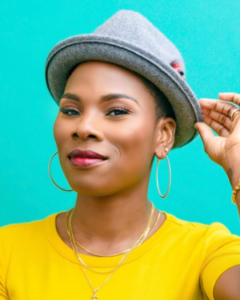
Luvvie Ajayi
Luvvie Ajayi
New York Times bestselling author of I’m Judging You; speaker; host of Rants and Randomness podcast; Curator of LuvvNation
Between the global pandemic, the groundswell of support for the #BlackLivesMatter movement and the recent loss of civil rights giants, it seems like the world is finally beginning to acknowledge that there is serious collective work to be done if we hope to see social change in our lifetime. I’ve heard a few people say this time feels different. Do you think real change is ahead? What’s your hope for how we emerge from this moment?
This moment feels really different because it almost feels physically uncomfortable. There’s so much tension in the air and so much that feels like it’s falling apart. It’s basically the storm before the calm, and I think it’s necessary. We are seeing very clearly how so many structures are not serving us. We’re seeing how the work that we have to do is much deeper than we thought. I am hoping that the urgency that we have allows us to dig our heels into the sand and get the work done. I am optimistic right now because as bad as things are, it feels like it’s right before the shift, whatever the great shift is. Kind of like how you open Pandora’s box and you can’t close it back up. When you open Pandora’s box, you have to figure out how to deal with everything you’ve let out.
And the best case scenario for us is to take this moment seriously and understand that it’s beyond the moment—it is the universe, the world, God telling us that we have to make major changes and we don’t have the option anymore to sit it out. I’m hoping that means that we are blowing up some systems that are oppressive and putting freer systems into place—a world where people who are marginalized are seeing themselves prioritized and heard. As we’re seeing all these protests and all of this uprising and people literally putting their bodies on the line, I’m hoping that we are all convicted to figure out what our role is so we can have sustained change.
Over the years, many of us have come to realize the importance of Black female leadership to the advancement of social justice movements. We want to support Black women and follow your leadership. What action or show of support would you say is most critical to realizing representation in leadership across sectors?
Right now we’re saying, “Listen to Black women, protect Black women, see Black women,” but I really think that protect Black women is key. I think people need to actually make it a point to fight for us, be deeply invested in our well-being and, above all, trust Black women. The people I trust the most in the world are Black women, without question. And if the world had listened to us more, we’d all be better for it. Put us in leadership positions, fight for our lives and our rights and our spirits. Affirm us.
Don’t just call on Black women when things are burning and people are like, “Oh my God, we need Black women to save the day.” Well, Black women might not have to be Batman if everybody else handled their own situation and approached the world with more empathy. But Black women happen to be strong and tender at the same time. We are loud and we’re still quiet in the moments we need to be. We occupy so many spaces and are expected to move through the world so seamlessly, and we do it with so much grace. So when people were saying, “We need Black women to save us,” it’s like, maybe we won’t have to be the saviors if you actually just saw us in our full humanity to begin with.
Right now I don’t think Black women are operating any differently than we’ve been operating. The world needs to operate differently with us. Our lives are at the intersection of so many marginalized positions that we also have the purview to be able to walk and chew gum at the same time. A lot of Black womanhood is based on multiple forms of oppression and because of that, we are more empathetic than a lot of other groups are, which is why we are the best leaders. Because those who have been trampled upon are the ones who know how to lead best without having somebody else’s head stepped on.
How do we make sure the #BlackLivesMatter movement doesn’t become just a moment in time? What do we need to do to sustain the progress we have seen in the past couple months?
I think what we need to do to sustain this progress is to continue saying “Black Lives Matter.” Because when we say it, then we can’t forget all the things that force us to say it, right? We can’t let the moment die because George Floyd is in our rearview mirror because that was three months ago. Oftentimes we have a very short attention span to sustain righteous rage, but we can’t afford to not sustain it. We can’t afford to let it die. We can’t afford to let the passion be watered out. The thing is, Black people always fight for ourselves, but in this moment, those who consider themselves allies have to find the fire for the fight and fight just as hard as we do.
We’ve continued to say “Black Lives Matter.” We haven’t stopped saying “Black Lives Matter” since Trayvon Martin died. What happened is, the rest of the world got quiet about it, and we’ve become the people who cried wolf. Those who consider themselves to be allies and accomplices have to pick up this fight and make sure they’re fighting even harder than us. Because we’ve been fighting continuously for centuries, so sometimes we do get tired, and we’ve earned fatigue. It’s everybody else who is new to this who can’t get tired. We have to make sure that we’re still talking about Breonna Taylor in three months if her killers have not been arrested; we still have to say the name of Aiyana Stanley-Jones; we still have to say the name of Rekia Boyd. We still have to make sure that we don’t let the rearview mirror distract us from the fact that this work must continue.
So as everybody’s putting “Black Lives Matter” on the grounds of cities, organizers are still fighting. People need to make sure they’re donating to organizations. People need to make sure they’re amplifying voices that are typically not heard. People need to make sure they’re writing the letters to the district attorneys and asking for justice for those whose lives have been taken. Even in December of 2020, or March of 2021, when it’s no longer trending on Twitter or Instagram or Facebook, we cannot forget the fight because the fight falls out of trending topics.

Aimee Allison
Aimee Allison
Founder and president of She the People
Between the global pandemic, the groundswell of support for the #BlackLivesMatter movement and the recent loss of civil rights giants, it seems like the world is finally beginning to acknowledge that there is serious collective work to be done if we hope to see social change in our lifetime. I’ve heard a few people say this time feels different. Do you think real change is ahead? What’s your hope for how we emerge from this moment?
When one takes in the combined cataclysms of the pandemic, the subsequent unrelenting economic fallout and the late-coming yet much-needed reckoning with racism in America, the only direction we should push for is up. Real change is ahead whether or not our leadership is ready for it. The challenge will be whether the change will be positive or not.
My hope is that our elected leaders will appreciate that moral leadership is coming from the people in the streets. The voice and brilliance of our people, especially our young people, gives me hope. We must make room for their new vision for our country—one that nourishes its people instead of using violence and prisons. This vision is multiracial, with people who want to embrace racial justice from every community. The hope is that we take collective historic responsibility for the pain and damage, and take concrete steps to address the harm in every aspect of our public lives.
Over the years, many of us have come to realize the importance of Black female leadership to the advancement of social justice movements. We want to support Black women and follow your leadership. What action or show of support would you say is most critical to realizing representation in leadership across sectors?
Black women are uniquely positioned to lead the nation forward in this moment. For centuries, Black women have courageously fought to extend the scope of justice and civil rights for everyone. We have stood as the moral counterpoint to an anti-democratic system built to privilege white men over everyone else. There is no simple way to right the centuries of wrong in this country. We don’t simply need allies in positions of power. Instead, we need allies to cede their power to us and allow Black women and our communities to lead. For some, the phrase “trust Black women” is a new and compelling call to action. Let’s see that call heeded in real time. Black women have the experience, acumen, ability and heart to fight to make economic and racial justice real—and we must have executive leadership, access to deep resources and vocal support from every race and gender to get our country out of the mess we are in.
How do we make sure the #BlackLivesMatter movement doesn’t become just a moment in time? What do we need to do to sustain the progress we have seen in the past couple months?
#BlackLivesMatter began as a loving, fierce idea and a call to reimagine a country and a world in which Black people are valued as fully human. It is a movement that is making America live up to its greatest promise of protecting life, liberty and the pursuit of happiness. To sustain the progress and promise of Black Lives Matter, we must listen to the demands of activists and implement their changes, no matter how difficult it may be. We must embrace anti-racists of every race and gender who can act in solidarity toward racial justice. We must demand that regardless of political party, leaders must adopt concrete measures to address racist systems. Black women have been leading the cause from Minneapolis to Portland, and if we want to sustain their progress, we need to implement their demands into law and policy.
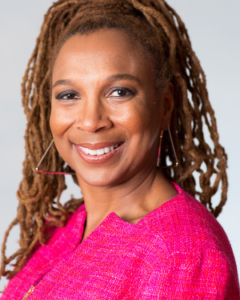
Kimberlé Crenshaw
Kimberlé Crenshaw
Co-founder and executive director of the African American Policy Forum; professor of law at UCLA and Columbia Law School; host of Intersectionality Matters podcast
Between the global pandemic, the groundswell of support for the #BlackLivesMatter movement and the recent loss of civil rights giants, it seems like the world is finally beginning to acknowledge that there is serious collective work to be done if we hope to see social change in our lifetime. I’ve heard a few people say this time feels different. Do you think real change is ahead? What’s your hope for how we emerge from this moment?
As a social justice advocate, I always have to hope that this moment is different, so it just kind of goes with the territory to have that hope. Now, the real question is, what are the odds and what are the conditions of possibility for this time to be different? I’ll start with the conditions of possibility for it to be different. I think we are seeing in this moment people being activated that never thought that this issue would be theirs. And I also think that that activation has heightened rather than diminished the problem that we’re protesting. In other words, we are protesting policing that is literally out of any control that reflects the fact that we live in a democracy. And the fact that more people are seeing it means that we’re not just protesting the thing that we saw on the video, which was horrific in and of itself, but now the crackdown of righteous indignation and expression of masses of people. So firing tear gas into crowds of peaceful protesters, knocking over a 75-year-old man and marching on—it doesn’t require those of us who’ve been sounding the alarm for the last three years that we were sliding into a police state; people are able to see it [for themselves] now. So I think the legibility of this moment is politically opening up possibilities that don’t open as long as people see the issue as being someone else’s issue, or just a particular expression of a bad apple. I think this is a moment where we’re looking at the barrel and we’re able to see the barrel in a clarity that we haven’t in a generation. So that’s a condition of possibility that makes me hopeful.
The condition that makes me worry is that for a lot of people, this is not a wake-up call to how bad things are. This is a moment for them to say, “Hell yeah, and that’s the way we want it to be.” So it’s heightening the contradiction, heightening the tensions between those who want to double down on this level of brutality; there are some that look at that video tape and do not see a problem. And I think what’s useful for us is to realize that a lot of the folks who were cool with the status quo, the folks that progressives think that we’re going to be able to woo back over to this side, they’re not “wooable” and we don’t want to woo them. They don’t have a problem with this. So now that makes it more clear. The clarity is what makes me more confident.
Over the years, many of us have come to realize the importance of Black female leadership to the advancement of social justice movements. We want to support Black women and follow your leadership. What action or show of support would you say is most critical to realizing representation in leadership across sectors?
I think it’s moving Black women from a symbol of leadership to the reality of leadership. There’s “trust Black women,” but people aren’t saying invest in Black women. I think we are in a moment where putting money and power where the rhetoric is can make a difference, but people have to really see how Black women’s leadership has been starved for a generation and really step up in a very significant way.
There is a cross-generational cadre of Black women leaders who are doing the work in the trenches, doing the conceptualization. And it’s often thankless, it’s often invisible. They’re not the women that we see on television, right? They’re not often the ones that come to mind immediately, and yet they continue to do the work. I mean, it goes all the way back to the Montgomery bus boycott. We all think that it was Martin Luther King and Ralph Abernathy. You don’t hear about the Black women like Jo Ann Robinson, who had been working for years to mobilize people. You don’t hear about them doing the hard work of making sure those nightly meetings happen, making sure people got to where they wanted to go.
So we’ve always had, in a patriarchal society, an idea about what leadership looks like, what gender it comes in, and that means we’ve missed out on real strong possibilities to build a movement that understands anti-Black racism in more fully realized ways across the gender spectrum. It’s not just lynching and quasi lynching; it’s a lot of stuff, including sexual violence against Black women, including terrorizing Black women, not just in the streets but in their homes, like what happened to Breonna Taylor. It means understanding that Rosa Parks didn’t become an activist when she decided not to give her seat up on that Montgomery bus. She was an activist when she defended Recy Taylor who was raped by several white men and they were never brought to justice or to trial for it. What would leadership look like and what would our movement look like if gender-based violence and racial violence had been seen as part of the same experience throughout the twentieth century? Where would we be now? So I think we just have to ask those questions and be far more prepared to accept and see leadership in Black women and identify leadership in ways that are not traditional.
How do we make sure the #BlackLivesMatter movement doesn’t become just a moment in time? What do we need to do to sustain the progress we have seen in the past couple months?
I think, frankly, that there is some unlearning and some historic archaeology that has to be done. And by that I mean, we are now in a period in which the belief that inequality is the product of individual or group incapacity to take advantage of the opportunities that exist has sort of been the baseline.
I’m of the mind that, number one, you gotta dig a little on the ground you think you’re standing on, so you can actually see that much of what you take for granted in society is actually layers upon layers of inequalities that have allowed for a baseline that’s fundamentally unequal and a product of white supremacy to just be taken as the natural point of departure for all things. And when Black people fall behind, [society’s belief that] it’s because they “didn’t do what they needed to do” rather than that we started on a platform that was fundamentally unequal, intentionally so, and are not paying attention to it, just plays forward that inequality that constituted the baseline from the beginning.
Back in the forties, when they were creating these suburbs, you would have a Black GI and a white GI. They have the same income, like $45 for housing. The white guy can invest it in housing and build wealth and take care of his kids and send them to college and take care of their grandparents in old age and have enough wealth for them. The Black person wasn’t able to invest in real estate and had to spend his rent on a substandard apartment in some high-rise apartment building and passes his “propertylessness” on generation to generation. That’s why we have huge disparities in wealth, which ends up being disparities in education and health, and finally disparities in their encounter with police. This is what it means to say this is a structural problem.
So, when you ask what we need to do, one thing is to start asking ourselves exactly how did I get where I am and why is someone else, or the family of someone else, in a fundamentally different position? So anyone who inherits wealth from property, for example, has to ask themselves, how were they in the position to get that? And how is someone else not in the position?
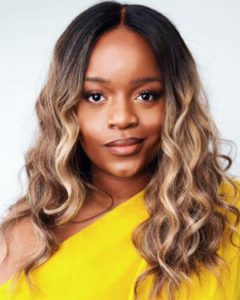
Brittany Packnett Cunningham
Brittany Packnett Cunningham
Activist, educator, writer, leader at the intersection of culture and justice; NBC News and MSNBC contributor; founder and principal of Love & Power Works
Between the global pandemic, the groundswell of support for the #BlackLivesMatter movement and the recent loss of civil rights giants, it seems like the world is finally beginning to acknowledge that there is serious collective work to be done if we hope to see social change in our lifetime. I’ve heard a few people say this time feels different. Do you think real change is ahead? What’s your hope for how we emerge from this moment?
I think real change is ahead because whenever people of good courage and a radical imagination get together, change is always promised. And I think that the dual pandemics of systemic racism and coronavirus are pushing people to realize that just because this is the way things are, does not mean this is the way things need to be. People are taking power in their own hands to create the world they want.
I feel hopeful in this moment because I look to ancestors who remained hopeful in the face of odds more insurmountable than the ones we face now and challenges more impossible than the ones we have now. I think of Harriet Tubman and Fannie Lou Hamer and Dolores Huerta, who is still going strong, and Margaret Bush Wilson from St. Louis and Julia Davis—so many people who did far more with far less than we have now and not only continued to keep their hands to the plow but actually got things done. When I look at what they accomplished, I believe that we are capable of anything.
Over the years, many of us have come to realize the importance of Black female leadership to the advancement of social justice movements. We want to support Black women and follow your leadership. What action or show of support would you say is most critical to realizing representation in leadership across sectors?
I think what’s most important is realizing that representation is only the first step—that unless people experience true equity and inclusion in the workplace and liberation more broadly, then we haven’t done all the work. It is not enough simply to bring Black women to the table if they are not leading the table, if we are not being resourced to build our own, and if we are not respected for the leaders that we are, instead of being made to fit into other people’s molds.
We are missing out on the brilliance of so many people that society is told to be quiet: women, women of color, immigrant women, Muslim women, Jewish women, disabled women and trans women have continuously been told over and over and over again to be quiet and wait our turn. And then our turn never comes. What are we missing as a society by all of the things that are bound up in the minds of the women and nonbinary people that we continuously tell to hold on, that we continuously tell to wait? We’re all losing out when we silence voices, when we discourage confidence and when we discourage ambition. And the sooner we can realize that, the sooner we’ll all benefit from the ambitious women that society seems so afraid of.
How do we make sure the #BlackLivesMatter movement doesn’t become just a moment in time? What do we need to do to sustain the progress we have seen in the past couple months?
There are many chapters in the global freedom struggle, and this is one of them. In order to sustain momentum, people need to take the momentum seriously in their personal lives. It was Black feminists who taught us that the personal is political. So what people really need to do is think about every choice they make—from how they run their households, to how they run their businesses—and recognize that liberation is not somebody else’s job; it’s all of our job, especially if you hold positions of power and privilege.
We have to confront this system that we are a part of that we perpetuate and that we have internalized. We should all be looking at the ways in which we are either perpetuating systems of systemic injustice or we are operating as an oppositional force. That is what we mean when we say being actively anti-racist. It is going to require that not only have you turned away from systemic racism, but that you are running hard and fast in the other direction and gathering as many people along with you to create the oppositional force that is needed to reverse the promised direction of our future.
And I would really encourage people to think locally—do the research that they need to do about the city that they’re from and the city that they live in, if those are not the same places, and figure out who is putting real wins on the board for racial justice. So for me, that’s organizations like Action St. Louis, organizations like Black Lives Matter DC, where I live right now. It is really about finding the places locally that support your community and that are creating discernible change in your community. And it is about making sure that you are also investing in the local and national organizations that have a vision that aligns with true justice and not just incremental change.
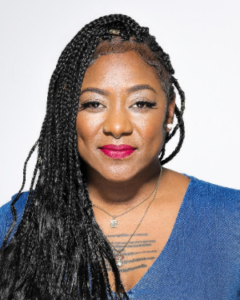
Alicia Garza
Alicia Garza
Principal of Black Futures Lab and co-creator of #BlackLivesMatter and the Black Lives Matter Global Network
Between the global pandemic, the groundswell of support for the #BlackLivesMatter movement and the recent loss of civil rights giants, it seems like the world is finally beginning to acknowledge that there is serious collective work to be done if we hope to see social change in our lifetime. I’ve heard a few people say this time feels different. Do you think real change is ahead? What’s your hope for how we emerge from this moment?
I believe that change is constant, so yes, of course real change is possible. And it’s happening all around us, all the time. Change in a particular direction is a different story. For some, this moment may feel different because they’re just joining it for the first time or because it’s much more widespread and multiracial than it was seven years ago. The pace and direction of change depends on what we do in this moment and how we change. Real change relies on white people divesting from white supremacy and directly confronting and challenging white nationalism. Real change depends on changing the way we act, not just the way we think. It means challenging the people who represent us to also represent the change we want to see in the world. So change, real change, depends on the steps we take right now. And my hope is that we choose to be bold, that we refuse to go back to the way things were—even when there aren’t people in the streets, there is still a much needed fight in our communities and in our city halls and state legislatures.
Over the years, many of us have come to realize the importance of Black female leadership to the advancement of social justice movements. We want to support Black women and follow your leadership. What action or show of support would you say is most critical to realizing representation in leadership across sectors?
Going out on a limb here, I believe that we need representation and substance to come together to realize what true change looks like. We need to support Black women with radical ideas for how to bring about true democracy. Representation in leadership across sectors has to include a vision that includes all of us; it can’t be enough to have Black women in positions of power if all we are doing is maintaining the current state of affairs and the balance of power as it is now. We need to invest in Black women leaders, expanding the infrastructure necessary to train Black women to play the critical roles needed to govern in this country. We also need to make sure that Black women are in positions of leadership throughout our communities—in our places of worship, in our workplaces, in our boardrooms and in our halls of power.
How do we make sure the #BlackLivesMatter movement doesn’t become just a moment in time? What do we need to do to sustain the progress we have seen in the past couple months?
#BlackLivesMatter has already demonstrated that this movement is not just a moment in time—it’s fundamentally reshaping the way our country functions and the rules that govern us. The more we can expand those who adopt the movement as their own, the better chances we have to expand and sustain the changes that we are pushing for. To sustain the progress we’ve seen in the past few months, we need to ensure that we are participating at record numbers—voting, engaging in local politics and holding state and federal officials accountable for meeting the demands of this moment. Visit Black Futures Lab’s Electoral Action Center to get involved; it’s your one-stop shop for making sure your voice is heard in November and beyond.
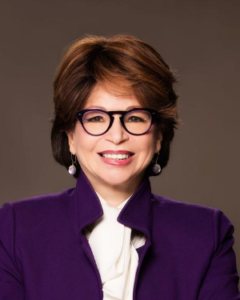
Valerie Jarrett
Valerie Jarrett
New York Times best selling author of Finding My Voice; senior advisor to Barack Obama, the Obama Foundation and ATTN:; senior distinguished fellow at the University of Chicago Law School; board chair of When We All Vote; co-chair of The United State of Women
Between the global pandemic, the groundswell of support for the #BlackLivesMatter movement and the recent loss of civil rights giants, it seems like the world is finally beginning to acknowledge that there is serious collective work to be done if we hope to see social change in our lifetime. I’ve heard a few people say this time feels different. Do you think real change is ahead? What’s your hope for how we emerge from this moment?
I can remember the 1960s civil rights movement and the momentum it generated that laid the foundation for progress we see today. Back then, Black women often did not receive the recognition they deserved for their contributions toward the fight for equality and justice. However, today is different because our voices are prominently represented in the Black Lives Matter movement that has inspired demonstrations in all 50 states with people of all different races, backgrounds and ages. These demonstrations have already yielded positive reforms. For example, Attorney General Keith Ellison took the investigation of the four officers involved in the death of George Floyd away from local prosecutors and swiftly brought a harsher charge against Derek Chauvin and charged the other officers. That is the kind of accountability that results from public pressure. Cities and states across the country have already banned the use of the chokehold and no-knock warrants.
Hundreds of mayors are working with local communities to review the use of force practices. We’ve even seen federal proposals on police reforms. I believe that these positive changes have fueled new hope that those who use their voices to speak out against injustice can make a difference and that Black women have earned their seats as leaders of this critical progress.
Over the years, many of us have come to realize the importance of Black female leadership to the advancement of social justice movements. We want to support Black women and follow your leadership. What action or show of support would you say is most critical to realizing representation in leadership across sectors?
I believe diversity is strength. In today’s marketplace, it’s more important than ever that decision-makers include input from a wide range of people, including Black women. The more voices that provide input, the better the resulting decisions will be. There are numerous examples of companies that became too insular and homogenous and have suffered competitively because they lack perspectives. Women are half the population and have a proven track record of making tremendous contributions when they do have a seat at the table. It’s a competitive advantage for businesses to attract and retain them at all levels, from the board of directors on down. And our country is better off when more Black women are representing us in elected office.
How do we make sure the #BlackLivesMatter movement doesn’t become just a moment in time? What do we need to do to sustain the progress we have seen in the past couple months?
To keep the momentum up, we have to remain strong, resilient and determined to do our part to speak out against injustice and in support of fairness, compassion and equality. We must recognize that the path is not always a straight path but a rough and turbulent one, so we must always push toward our true north.
And finally, demonstrations alone are not enough. We also must exercise our right to vote. And we must be informed voters. Which candidates most closely share our values and our priorities? Elections at every level of government matter, and they have serious consequences in our daily lives. Signing up to volunteer and organize your community, friends, families and co-workers to ensure that they are registered and ready to vote is all of our responsibility.
For far too long the voices of Black women have been unvalued or muted. This moment will remain a positive movement for change because we will demand it. We will not grow weary. We will not be silenced.
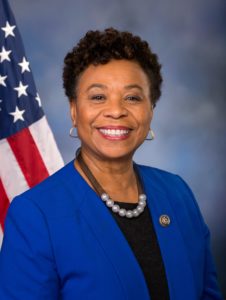
Barbara Lee
Barbara Lee
Democratic US Representative, California; co-chair of House Democratic Leadership Team; human rights advocate
Between the global pandemic, the groundswell of support for the #BlackLivesMatter movement, and the recent loss of civil rights giants, it seems like the world is finally beginning to acknowledge that there is serious collective work to be done if we hope to see social change in our lifetime. I’ve heard a few people say this time feels different. Do you think real change is ahead? What’s your hope for how we emerge from this moment?
My hope is that people use this momentum toward dismantling the racist systems in place that are holding us back. These injustices are not new, they are just being caught on tape. But now, with the public’s awareness, my hope is that we learn from these experiences and push for radical change. I proposed a Truth, Racial Healing, and Transformation Commission to examine the harmful effects of slavery and its impact on our society today. I’m also a cosponsor of H.R. 40, which establishes a commission to study and consider a national apology and proposal for reparations for the institution of slavery and its residual impacts on living African Americans. We cannot move forward and build a better future without coming to grips with our past. I’m optimistic because it seems as though the public is becoming more aware of the issues of systemic racism, but there is still much work to do.
Over the years, many of us have come to realize the importance of Black female leadership to the advancement of social justice movements. We want to support Black women and follow your leadership. What action or show of support would you say is most critical to realizing representation in leadership across sectors?
Black women have often been the unsung sheroes of social movements. They are the change agents that are often overlooked, underappreciated and encounter the most resistance. My mentor and the reason I got into politics, Shirley Chisholm, always said, “If they don’t give you a seat at the table, bring a folding chair.” Well, we have brought our chairs, and we are here to stay. And as Congresswoman Chisholm correctly explained to me, it was the public policies of segregation and discrimination against African Americans, people of color and women that were responsible for the injustices that my family and millions of others had experienced. I am a Black woman operating in a legislative body historically laden with white supremacy, and she demonstrated to me how to fight against a system that was not designed for us. I hope that our work over the last 50 years has paved the way for so many young Black women and women of color coming up now, like my colleagues in “the Squad.” Women of color are the future of politics. We will vote Donald Trump out of office in November, and we will continue to insist that Black women hold leadership positions across all sectors so we can keep bringing about transformational change.
How do we make sure the #BlackLivesMatter movement doesn’t become just a moment in time? What do we need to do to sustain the progress we have seen in the past couple months?
The murder of Mr. George Floyd and the current COVID-19 crisis illustrates once again the painful and dangerous legacy that white supremacy has had in our country and the desperate need to fully acknowledge and understand how our history of inequality continues today. This inequality is at the heart of every crisis we’re dealing with right now. We are seeing everything from the crises of police brutality and mass incarceration to the COVID-19 public health crisis, which is disproportionately affecting communities of color, to the crisis of poverty excluding so many minority families from the American Dream—the list goes on and on. In the House, we will continue to advance legislation that addresses some of the issues around police accountability, criminal justice reform and the deep systemic racial issues we see today. However, we will need change in the Senate and White House to really get the type of policy reforms this moment demands. Peaceful protests are important, and we must organize at every level to defeat the Trump administration. This election is a matter of life or death.
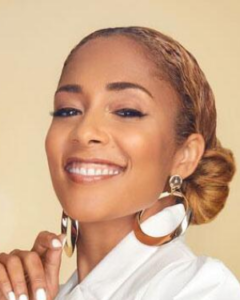
Amanda Seales
Amanda Seales
Comedian, actress, writer, producer; founder of Smart Funny & Black Entertainment; author of Small Doses: Potent Truths for Everyday Use; host of Small Doses with Amanda Seales podcast
Between the global pandemic, the groundswell of support for the #BlackLivesMatter movement and the recent loss of civil rights giants, it seems like the world is finally beginning to acknowledge that there is serious collective work to be done if we hope to see social change in our lifetime. I’ve heard a few people say this time feels different. Do you think real change is ahead? What’s your hope for how we emerge from this moment?
I always think real change is ahead because I feel like there are always people at work on change, and their commitment carries through. They’re not the first to start and they won’t be the last to continue it. I think we all quantify what is considered “real change” very differently. For many, real change shows up in tangibles like policy, like infrastructure, like creative voices and how they’re depicted. Do I feel like those things are on the horizon? Yes, some in more cases than others.
However, I think the real change that needs to happen for the actual world to change must take place within us internally as individuals. Unfortunately that’s harder to see in immediate action, but I hope that in my lifetime I get to see that carried out and demonstrated by the generation following us, because that’s who I believe will have the best outcome and course correcting American society.
Over the years, many of us have come to realize the importance of Black female leadership to the advancement of social justice movements. We want to support Black women and follow your leadership. What action or show of support would you say is most critical to realizing representation in leadership across sectors?
Just do it. I think oftentimes we get caught up in rhetoric and posturing and planning, and it’s like, just do it. What’s in the way is simply just a decision. A decision to say, “Let me hear you. Let me hear what you have to say. Let me place this person in a position; they have the expertise.” The things that prevent that are oftentimes fear or habit or nepotism. It’s really just making the decision to change how you make your decisions, and I don’t feel like that’s as difficult as folks make it out to be.
Some basic examples of this are, there are conference rooms where Black women speak and are not heard, yet everyone watches as others with white privilege/male say the exact same thing and are given praise. If you’re in that situation, give voice to the Black person who already spoke. Do not allow their words to be co-opted. There are times when Black women are hired to do jobs that they have expertise in, and their expertise is ignored by the individuals who hired them because even though they gave them the position, those individuals still feel like, “Yeah, but I am of privilege and I still feel like I know better.” Shift that dynamic.
These are the stories that I hear. These are stories I’ve lived. So when I say, “just do it,” what I mean is, remove the blinders of position, of privilege, of comfortability in having had your voice centered and actually listen to this other voice that is also there and, to take it a step further, give platform to that voice.
How do we make sure the #BlackLivesMatter movement doesn’t become just a moment in time? What do we need to do to sustain the progress we have seen in the past couple months?
We need to implement it not just in the space of social justice but considering social justice as a way of life. I think a lot of people don’t really think that way. They’re like, “I’m doing this work in this moment right here,” not understanding that we live in a world, and in this specific case a country, where it is ingrained not just institutionally but systemically. It requires us to make social justice a part of our everyday existence not just the part of our work with institutionalized change. Because that’s what consciousness is—consciousness is expanding the way in which you apply change beyond just this specific instance. And some people feel like, “As long as I am in the right frame of mind when I’m at work, I don’t have to keep that frame of mind at all times.” It is a conscious decision to do that—to always be in service to change.
I work closely with the WeAre Foundation, a nonprofit created to increase voter registration and challenge voter suppression particularly among Black and Brown communities. There’s also Color of Change, which does a lot of work within various spaces of social change, in particular the entertainment space and making sure that there is an accountability and visibility of Black voices within our media spaces, which I consider to be very important. There’s also Alicia Garza’s Black Futures Lab, which works to create funds that allow Black voices to take real political power to create change. And finally my production company Smart Funny & Black, which holds a unique space in that it functions as a grassroots media company across various platforms in using the craft of comedy to create conscious content that speaks life and laughter into the Black community.
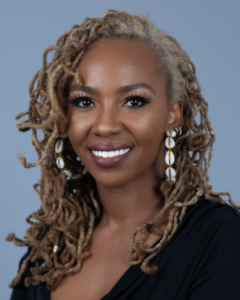
Opal Tometi
Opal Tometi
Award-winning human rights defender; co-founder of #BlackLivesMatter; founder of the new digital digest Diaspora Rising; one of TIME Magazine’s 100 Most Influential Women of the Last Century
Between the global pandemic, the groundswell of support for the #BlackLivesMatter movement, and the recent loss of civil rights giants, it seems like the world is finally beginning to acknowledge that there is serious collective work to be done if we hope to see social change in our lifetime. I’ve heard a few people say this time feels different. Do you think real change is ahead? What’s your hope for how we emerge from this moment?
I’m hopeful for the future because I’ve witnessed the courage and commitment of people of conscience. Additionally, it can’t be denied that there is unprecedented energy around Black Lives Matter values and the need for structural change. I’m reminded of a reflection that John Lewis made about BLM before his passing. He stated, “There’s no going back.” And honestly, so many are committed to that creed. We are not naive, we know that structural injustices didn’t happen overnight, and so we are seeing the development of institutions to reimagine justice and safety. Ultimately I’m hopeful that the displays of support aren’t merely performative, but that they’ll inform the work that’s necessary for the transformation our communities have been demanding for years.
Over the years, many of us have come to realize the importance of Black female leadership to the advancement of social justice movements. We want to support Black women and follow your leadership. What action or show of support would you say is most critical to realizing representation in leadership across sectors?
Black women are architects. We are creators. We are leaders. Without the labor and leadership of Black women, most social movements would not be effective and some simply wouldn’t exist. We must support the Black women who’ve made these interventions in our society; amplify their voices. It wasn’t a fluke that three Black women created Black Lives Matter. We’re more than just activists; we are strategists and leaders. We didn’t just stumble into this movement; we helped organize toward it. And organizing is both science and art. We need supporters to invest in Black women’s leadership. Invest in our projects. Invest in our campaigns. Invest in our businesses. Cite our work. Uplift our names, and celebrate our contributions. And lastly, don’t just “do it for the ‘gram”—do it IRL.
How do we make sure the #BlackLivesMatter movement doesn’t become just a moment in time? What do we need to do to sustain the progress we have seen in the past couple months?
We must maintain our resolve and spirit for the long haul. We must stay organized around our values and vision as we move forward. Inequality and injustice didn’t happen overnight – and so we, too, must make a steadfast commitment to justice. We must build powerful and inclusive institutions that make the status quo obsolete. And we must build the political power to ensure that every life is treated as essential.
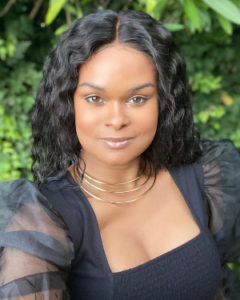
Raquel Willis
Raquel Willis
Award-winning writer, activist, and director of communications for Ms. Foundation
Between the global pandemic, the groundswell of support for the #BlackLivesMatter movement, and the recent loss of civil rights giants, it seems like the world is finally beginning to acknowledge that there is serious collective work to be done if we hope to see social change in our lifetime. I’ve heard a few people say this time feels different. Do you think real change is ahead? What’s your hope for how we emerge from this moment?
Change is always possible. Every generation has people fighting for and working for change. I hope that things are different now. I feel like we have more language, more tools, and more understanding of various marginalized experiences, and this will help us draft lasting solutions in a way that previous generations may not have been able to. But I’m very wary of painting this moment with flying colors, because we’re already seeing fatigue and exhaustion around some of the changes and the transformation that need to be implemented for Black people, particularly Black trans people. We have to figure out ways that we can sustain this momentum, and that’s not going to be easy. It’s not enough to have conviction—there has to be a flame that’s consistently lit to fuel that conviction.
The other thing for me is, as a Black trans woman, I feel like we’re uniquely able to see just how far things still have yet to go. Even within the various communities that we’re a part of—whether it’s the Black community or the LGBTQ + community or the feminist movement—we’re not seeing the same type of strides that maybe other groups are seeing on a larger level. And that needs to shift.
The deeper work is the internal transformation. People have to be willing to consider the fact that they can be both oppressed and be an oppressor—all people. And without a radical shift in even the personal lens, I think we will continue to see these band-aids placed over the gushing wounds of oppression.
Over the years, many of us have come to realize the importance of Black female leadership to the advancement of social justice movements. We want to support Black women and follow your leadership. What action or show of support would you say is most critical to realizing representation in leadership across sectors?
We need to look at the more tangible ways of creating change and implementing policies that will ensure leadership that is truly from experiences on the margins. It’s about a massive reallocation of time, energy and resources to Black women and Black trans people. I’m grateful to be joining the Ms. Foundation at this pivotal time in social justice. We just released a report discussing how philanthropic giving to women and girls of color is such a fraction of the national figures. In 2017, giving per woman and girl of color was just $5.48. If we can acknowledge that Black women are consistently on the front lines, then we have to name that leadership, track the financial support of it and, ultimately, increase it.
For me, it’s always about elevating the dignity and honor of Black trans people and our power. We’re so erased and ignored, again, in the various movements that we’re a part of. So following and elevating Black trans leaders in this time is important. I think supporting organizations that are led by Black trans people, like The Transgender District and TGIJP out in San Francisco, Solutions Not Punishment Collaborative out in Atlanta, House of Tulip and Youth Breakout down in New Orleans, Black and Pink and Brave Space Alliance. People would be surprised at how many Black trans led organizations there are, but the work is also about transforming the institutions that people are currently a part of. Consistently ask yourself how you can make your workplace, place of worship and home more affirming of the Black transgender experience.
How do we make sure the #BlackLivesMatter movement doesn’t become just a moment in time? What do we need to do to sustain the progress we have seen in the past couple months?
We love to frame fights for liberation as if they are brand new. Of course that’s not to take away from the strides of specific movements, but they’re all within a larger fight for liberation. Even the Black Lives Matter movement is continuing a march forward that folks like the late representative John Lewis put forth or even Malcolm X, or for me, as a Black trans woman, someone like Marsha P. Johnson. So we’re always in a larger continuous fight, and I think we do a disservice when we try to put stop gaps on when a movement is relevant or not. Our fight will continue long after our contributions.
We also have to continue to raise our voices, fight on the streets and fight in the institutions that we’re a part of with strategy, intentionality and humanity. There’s such a resiliency to these systems, and we always have to be vigilant about pushing back those forces that want to silence us or diminish us or make us feel like all we deserve are bread crumbs. And we can’t do that if we burn out. So we have to get creative about how we can sustain our momentum without losing ourselves and our health within these fights.
This article originally appeared at ForbesWomen.
Visit COVID Gendered for more articles, information and resources.
Tolu Lawrence is a Nigerian-American feminist and attorney with over a decade developing cross-sector partnerships and mission-driven initiatives that further social good. She leads Strategic Growth at Promundo-US, founded Tolu+Co., serves as an advisor to Feminist.com and sits on the boards of MotherCoders and PL+US.
Marianne Schnall is a widely-published interviewer and journalist and author of What Will It Take to Make a Woman President?, Leading the Way, and Dare to Be You. She is also the founder of Feminist.com and What Will It Take Movements.
